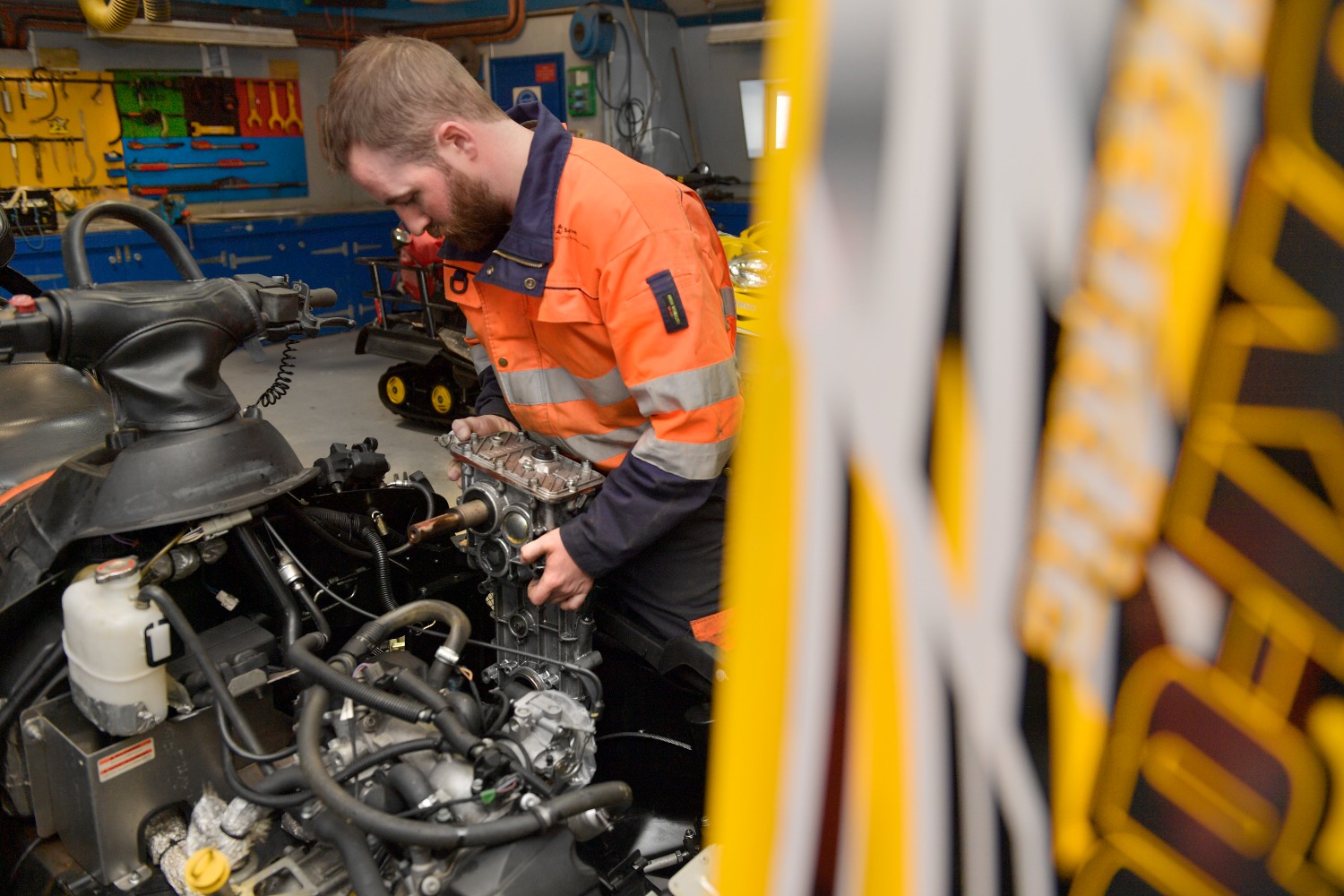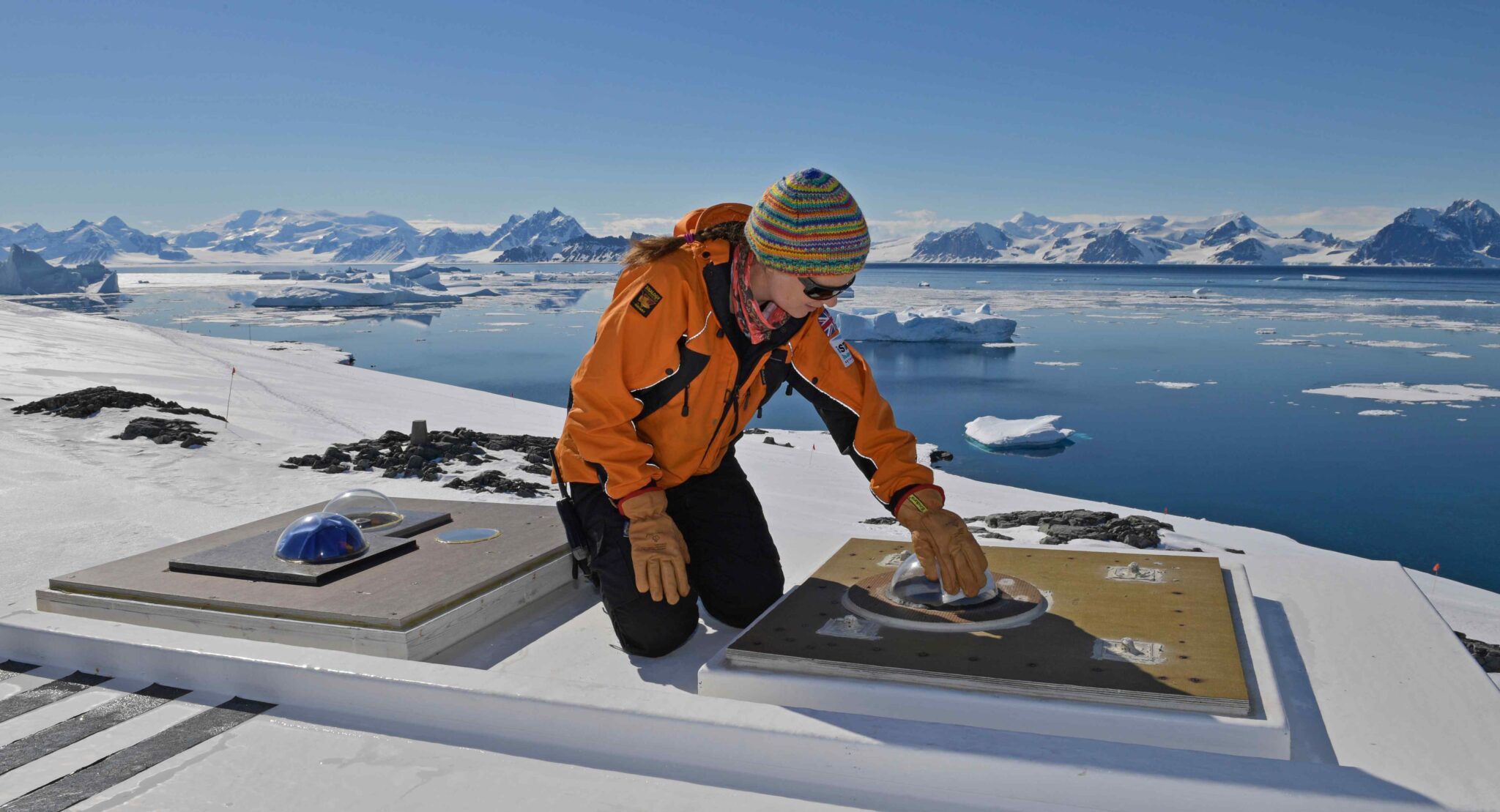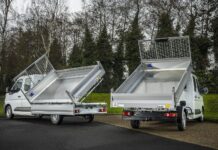
THE British Antarctic Survey (BAS) is offering plant operators the ‘job of a lifetime’ in Antarctica.
The opportunity comes as the organisation looks for people to work at its research stations in Antarctica in a range of roles, including electricians, plumbers, boating officers, carpenters, and plant operators.

Described as a job ‘unlike any other’, BAS said that it will provide lifelong memories – allowing successful applicants to work in some of the most remote and beautiful places on earth, whilst building lifelong friendships and contributing to science that’s critical for understanding our changing world.
Ben Norrish, head of vehicles, joined BAS in 2001 as a mobile plant technician. He has since returned to Antarctica many times, having spent 16 Antarctic seasons living and working on the ice.

He said, “There’s something special about Antarctica and the people that adventure there that gets under your skin. No matter how many times you go, when you step off the ship or aeroplane into Antarctica, you look up and take in where you are. That feeling of being in an amazing place is that same now as it was the first time. I would say to anyone who’s even a bit curious about what it’s like to live on the ice, take the leap and apply for the job of a lifetime – you won’t regret it and you don’t know where it might take you!”
Meanwhile, Eloise Saville is a carpenter at Halley VI Research Station, which sits on an ice shelf and is the furthest south of the BAS research stations. This is her first season in Antarctica.
She said, “This job is unlike anything I’ve ever done before. I scrape ice off wood, drive skidoos and build things in one of the most extreme places on Earth, yet it’s funny how quickly it all feels normal. The people here are some of the most interesting and adventurous that I’ve met, and yet they’re normal too! If I’d known this was an option earlier, I’d have been working my way down here all along. It’s not just cold, it’s cool!”
Looking out the window of your workplace and watching icebergs, whales and penguins is an experience that never gets old. Olivier Hubert, who is now a catering manager at BAS, was a chef in a Michelin-starred restaurant before deciding he was ready for a change of scene. He has over-wintered at Rothera Research Station and spent a summer at Halley VI Research Station.
He said, “Being a chef in Antarctica is a very different experience to anything I’ve ever done before. Meals are such an important part of life down south – they’re the anchors to the day so the pressure is on to create interesting and nutritious meals with limited supplies. But it’s such a privilege to cook for the team that become your family while you’re there – plus the views from the kitchen are pretty epic!”
The first batch of the jobs – including diving officer, meteorological observer and ocean scientist are now on the BAS website. Applicants should check the specific job advert for the relevant closing date, with contracts starting anytime between May and September.
Contracts run from six to 18 months and are flexible. Salaries start at £29,273 per annum, with a benefits package. It’s worth noting there are no external costs whilst living on station as all living expenses are covered – accommodation, food, travel, specialist clothing, tools and training.
Project Plant’s sister publication, Project Scotland, spoke to David Brand, senior project manager at BAS, in 2022 on working in Antarctica. To read the article click here.











